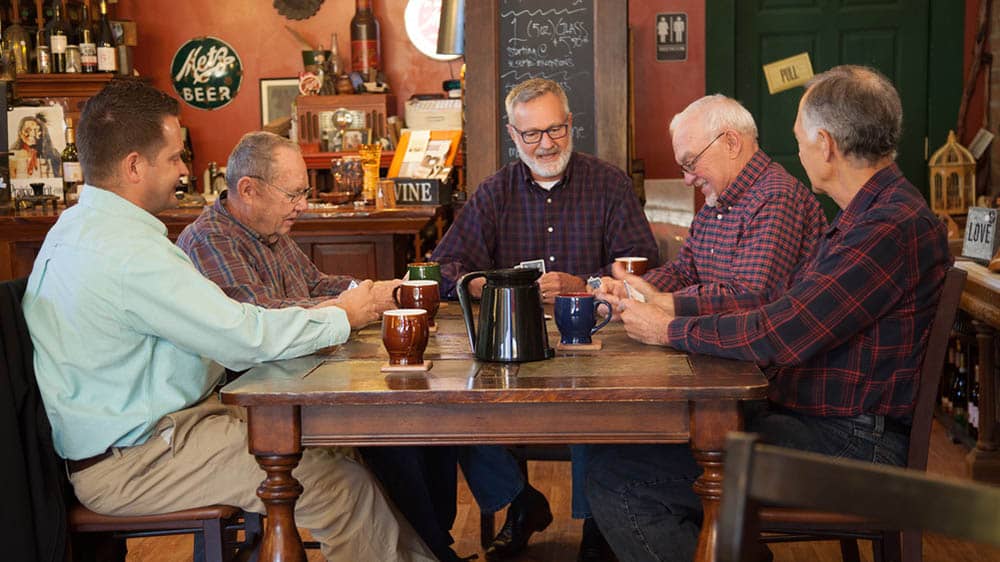

How Social Isolation Affects Older Adults’ Mental Health
May is Mental Health Awareness Month, which shines a spotlight on a crucial yet often overlooked issue: the impact of social isolation on the mental health of seniors. Many older adults face increasing periods of loneliness, which can greatly affect their emotional and psychological well-being.
Loneliness is a “serious public health risk,” says the Centers for Disease Control and Prevention (CDC).
Why Do Seniors Get Lonely?
Social isolation is the most common cause of loneliness. Whether an older adult has lost their spouse, lives far from other family members, or is otherwise a “solo ager,” loneliness can set in. Not having social activities or friends to connect with makes matters worse.
Lifestyle or health factors such as being retired or living with a disability or illness can also make things worse.
How Does Social Isolation Affect Seniors?
Social isolation has been shown many times to have serious health consequences for older people. In fact, the CDC says that it “significantly increased a person’s risk of premature death from all causes, a risk that may rival those of smoking, obesity, and physical inactivity.” It can cause:
- Increased risk of depression
- Anxiety
- Cognitive decline, including an increased risk for dementia
Friends and family members should look for signs of isolation in an older adult’s lifestyle and encourage or help them make some changes. This often gets worse in winter, when colder weather may keep people indoors more than usual.
A Ray of Hope: The Power of Connection
Simple acts of connection can significantly improve the mental health of isolated seniors. A recent article in Forbes highlighted research showing that even just a weekly phone call could markedly improve the mental well-being of seniors who are lonely or depressed.
This study serves as a testament to the power of human connection. It suggests that even minimal, consistent social interaction—such as a phone call from a friend, family member, or volunteer—can break the cycle of isolation and contribute to a more positive mental state. The beauty of this solution lies in its simplicity and accessibility, making it a viable option for many who wish to support the elderly in their family or community.
How To Combat Senior Social Isolation
Recognizing the link between social isolation and mental health is the first step; the next is taking action. Here are four practical ways we can all help reduce loneliness among older people:
- Check in with them regularly: Make it a point to call or visit the seniors in your life regularly. These moments of connection can make a big difference in their overall well-being. Don’t be afraid to ask them about loneliness. Many people don’t want to talk about such feelings, but opening the door can be a big step toward change.
- Encourage community engagement: Many communities have senior centers or programs specifically designed for older adults. Encourage seniors to find a way to participate—these activities can help build a sense of belonging and community.
- Suggest they try volunteering: From schools to museums, many organizations depend on help from volunteers. Encourage an older adult to find an organization they’re interested in. Something as simple as volunteering for an hour or two every week can change their life. And who knows: Sometimes volunteer gigs turn into paid jobs—something the older adult may welcome.
- Help with technology: Teaching a senior to use technology can help them stay connected with their loved ones, especially if their family lives far away. Maybe they can start with a telehealth visit with one of their providers. Or you might show them the ropes of using a smartphone or a GrandPad or similar device. One note of caution, though: Encourage the senior to avoid “passive scrolling” or “doom scrolling.” Too many people of all ages already know how easy it is to waste hours of time online—and that can only make loneliness worse.
Humans Are Social Animals
“Human beings need social connections to thrive, and being embedded in strong supportive networks can protect our wellbeing when we’re faced with difficulties in life,” Dr. Olivia Remes, a mental health researcher in the U.K., told CNN. Mental Health Awareness Month reminds us of how we can create a more inclusive, compassionate society where no one feels alone.
How Right at Home Can Help
Right at Home offers a wide range of homemaking/companion care services that can help promote healthy living and well-being through social interaction. Our screened and trained professional caregivers can provide services ranging from nutritious meal preparation and light housekeeping to help with hygiene and dressing. Use our office locator to find the nearest office and ask about a FREE in-home consultation.
Interested in receiving ongoing tips, information, and advice about caring for your aging loved one? Sign up for our monthly e-newsletter.







